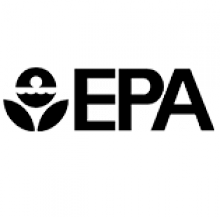EPA’s Title V Program Needs to Address Ongoing Fee Issues and Improve Oversight
Lack of consistent oversight and persistent Title V fee challenges may undermine Title V program implementation.

United States
Be as specific as possible and provide the following: • Relevant name(s) of all parties involved, including witnesses and other contacts. • Dates and times of the events or issues that you are identifying. • The location of the issue or the area that it impacts. • Name of contractor or grantee. • Contract or grant numbers. • Contract or grant award date. • Any additional pertinent information you have concerning the issue.
The OIG Hotline handles allegations of fraud, waste and abuse in EPA and CSB programs generally. For immediate concerns regarding an environmental hazard, please contact an EPA hotline, as shown below. • Contact a specific EPA hotline. • Or use the EPA Environmental Violations Form to report any incident.
Lack of consistent oversight and persistent Title V fee challenges may undermine Title V program implementation.
The EPA does not have a formal process for updating its federal radiation guidance and policies, but it has updated its radiation guidance to incorporate new data.
We found the fund’s financial statements, except for accounts receivable and earned revenue, to be fairly presented.
This Semiannual Report to Congress reflects how the EPA OIG is achieving its mission of preventing and detecting fraud, waste, abuse, mismanagement, and misconduct related to the programs and operations of the U.S. Environmental Protection Agency and the U.S. Chemical Safety and Hazard Investigation...
Compliance-monitoring activities are important to ensure that facilities comply with applicable Clean Air Act requirements and air regulations to protect human health and the environment and deter violations that result in excess emissions.
We found the EPA’s financial statements to be fairly presented and free of material misstatement.
Allmond & Company found the CSB’s financial statements to be fairly presented and free of material misstatements.
The Reports Consolidation Act of 2000 requires each inspector general to prepare an annual statement summarizing what the inspector general considers to be “the most serious management and performance challenges facing the agency” and to briefly assess the agency’s progress in addressing those...